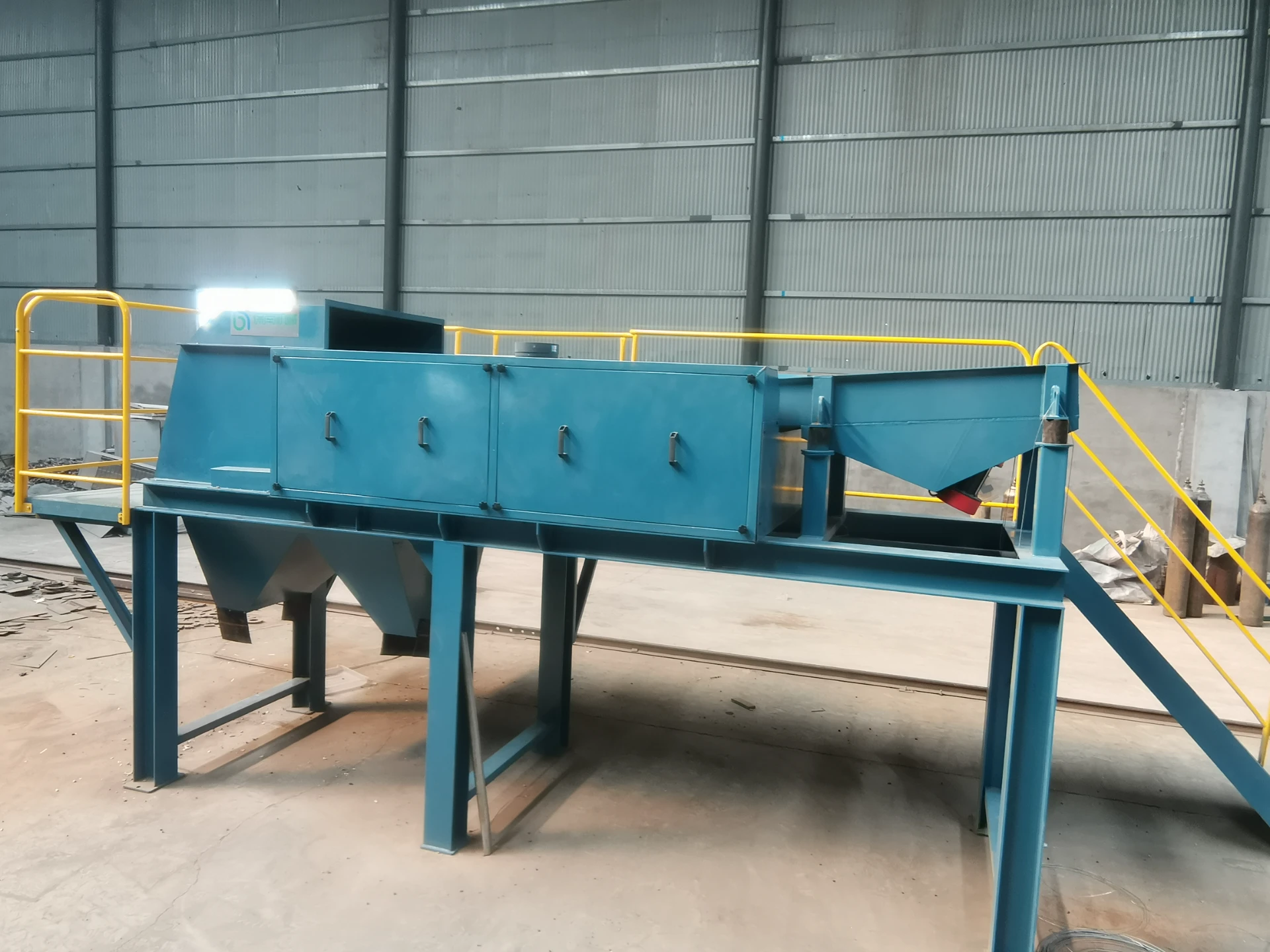
9 月 . 28, 2024 19:14 Back to list
The Importance of Non-Ferrous Metal Separation in Recycling
In an era increasingly defined by environmental consciousness, the importance of recycling has become paramount. Among the various materials being recycled, non-ferrous metals hold significant value. Unlike ferrous metals, which contain iron and are magnetic, non-ferrous metals such as aluminum, copper, zinc, and lead are non-magnetic and possess unique properties that make them essential in various industries. Effective separation and recycling of these metals have gained attention for their economic and environmental benefits.
The Importance of Non-Ferrous Metal Separation in Recycling
The process of non-ferrous metal separation begins with the collection of scrap metals, which can originate from various sources, including industrial waste, consumer products, and discarded electronics. Once collected, these metals undergo a series of processes to segregate them effectively. Mechanical separation techniques such as shredding, screening, and air classification are commonly employed. Advanced technologies like eddy current separators and optical sorting systems enhance the accuracy of the separation process, ensuring a high-quality output of recycled metals.

Eddy current separators, for instance, utilize a magnetic field to induce currents in conductive metals. This results in the metals being propelled away from non-metallic materials, allowing for efficient separation. Optical sorting technology, on the other hand, employs cameras and lasers to identify different types of metals based on their properties, considerably increasing the recycling efficiency.
The benefits of non-ferrous metal separation extend beyond mere resource recovery. Utilizing recycled metals contributes to lower carbon emissions, minimizing the ecological footprint associated with mining and refining new metals. This recycling process not only conserves energy but also mitigates the adverse effects of mining operations, such as habitat destruction and water pollution.
Moreover, the economic implications of metal separation cannot be overlooked. The recycling industry provides significant employment opportunities and generates substantial revenue. By investing in efficient separation technologies and processes, countries can bolster their economies while moving towards a circular economy, where resources are kept in use for as long as possible.
In conclusion, the separation and recycling of non-ferrous metals play a crucial role in promoting sustainability and economic growth. As we confront the dual challenges of resource depletion and environmental degradation, advancing technologies in metal separation will be essential. By recognizing the value of non-ferrous metals and enhancing recycling efforts, we can build a more sustainable future that balances industrial demands with ecological preservation. The journey towards a greener planet begins with responsible recycling practices that conserve resources and protect our environment for generations to come.
Latest news
Unveiling the Power of Eddy Current Separator
NewsSep.25,2024
Transform Your Home Recyclin:home metal shredder
NewsSep.25,2024
The Future of Waste Management with Recycling Line Picker
NewsSep.25,2024
The Benefits of a Metal Recycling Plant
NewsSep.25,2024
Revolutionize Material Separation with Onwang Technology
NewsSep.25,2024
Innovative Waste Management: Unveiling the MSW Sorting Plant
NewsSep.25,2024